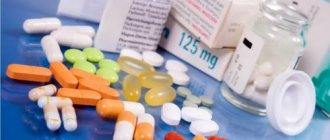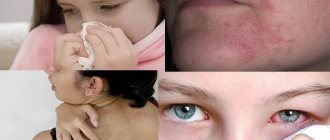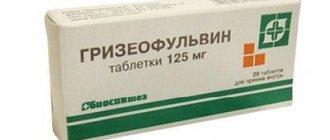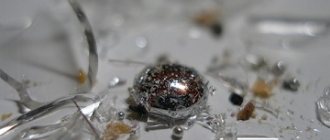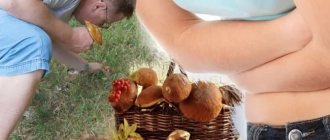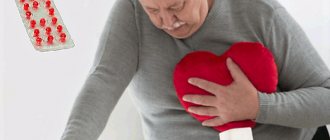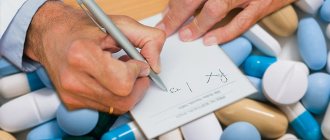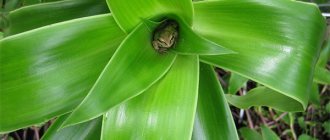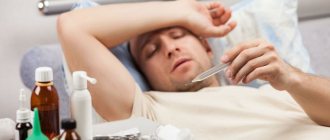Food poisoning may not be recognized immediately. Initially, poisoning of the body causes strange weakness and apathy - but they are often attributed to ordinary fatigue. If digestive disorders, vomiting, nausea, fever, headaches are added to the symptoms of food poisoning, you cannot do nothing. If the degree of poisoning is not high, a number of emergency measures can be taken at home.
How to determine poisoning
To begin to help the victim at home, you need to know what signs to identify food poisoning. These include:
- Frequent diarrhea, can occur 3-4 times in one hour.
- Nausea, urge to vomit, but vomiting itself is rare.
- General weakness.
- Unpleasant sensations in the stomach.
- Temperature rise, slight.
- Cold sweat appears on the skin.
The patient's condition is not critical, but very unpleasant. If the symptoms are significantly worsened, the cause may be salmonellosis, in which case it is necessary to consult a doctor.
The most dangerous food poisoning disease is botulism. Caused by botulinum toxin produced in home canned food prepared using the wrong technology. This toxin causes disturbances in the functioning of the nervous system. There may be visual distortions and difficulty speaking. In rare cases, visual hallucinations occur. The greatest danger is weakening in the muscles throughout the body: it begins with the muscles of the respiratory system, patients may experience breathing problems and outright suffocate.
When the symptoms of poisoning become aggravated, accompanied by pain in the liver or kidneys, disturbances in the functioning of the nervous system, or difficulty breathing, you need to call an ambulance rather than try to do something about it yourself.
What is poisoning
Food poisoning or food intoxication (depending on the etiology) is what official medicine calls poisoning that occurs as a result of eating food. The disease predominantly occurs in an acute form, occurring against the background of eating food covered with pathogenic microorganisms and the toxins they secrete. Food poisoning is divided into:
- Microbial - caused by Escherichia coli or botulinum, enterococci, staphylococci. These include toxic infections, mycotoxicoses and bacteriotoxicoses.
- Non-microbial - poisoning by plant and animal products that are initially dangerous due to toxicity or have accumulated toxins due to certain reasons.
- Due to chemical impurities - caused by consuming products containing excess pesticides, nitrates, and heavy metal salts.
Clinical manifestations of food poisoning are gastroenteritis, but in some cases there are no symptoms or only a few hours. This picture is typical of botulism and lead poisoning. With classic non-microbial intoxication, the onset of the disease is always sudden and the course is short, accompanied by the following symptoms:
- malaise, weakness;
- sharp pain in the abdomen;
- diarrhea, frequent urge to defecate;
- gas formation, bloating;
- nausea, vomiting.
An important point is a person’s ability to distinguish food intoxication from an intestinal infection, for which it is necessary to draw up a general treatment regimen in a completely different way. An intestinal infection enters the body by airborne droplets or contact (not through food), its incubation period is longer (from a day to a month) and it is characterized by a high temperature that lasts for several days, frequent diarrhea and dehydration.
First aid for food poisoning
What to do in case of food poisoning? In case of severe intoxication, you must first call an ambulance. During the time that doctors will travel, it is important to help the poisoned person relieve symptoms and avoid worsening the condition. First aid must also be provided for minor poisonings, when there is no need to call doctors.
The patient needs to be provided with bed rest and complete rest. It is better to lie on your side, since if nausea and vomiting develop, you can choke on the vomit. Next, you should do a gastric lavage; for this, the patient needs to drink a lot of liquid (water or soda solution, potassium permanganate solution) until there is only water in the vomit - this is a mandatory step in eliminating severe intoxication syndrome.
To lavage the stomach, a solution of potassium permanganate is prepared as follows: into warm boiled water, heated to room temperature and slightly above -25-40 degrees, add a solution of potassium permanganate until the solution turns dark pink - for adults, for children use a pale pink solution colors. Drink 2-3 liters of solution, then induce vomiting by pressing on the root of the tongue.
After each attack of vomiting, you should drink water or decoctions, this will help avoid dehydration. It is prohibited to give food to the patient for 24 hours. If you need to eat, you should not eat proteins and fats; preference should be given to complex carbohydrates; you can eat oatmeal with water. Read also: First aid for poisoning.
What to do in case of poisoning
If the problem arose due to the ingress of chemicals or toxic products into the gastrointestinal tract, it is pointless to find out what they drink during poisoning: immediate hospitalization of the patient is required. In the case where the culprit is spoiled or microbially contaminated food, you can cope with intoxication yourself. First aid for food poisoning, preceding the main therapy, looks like this:
- Induce vomiting as early as possible - this will prevent toxins from entering the blood and speed up the healing process.
- Carry out gastric lavage: drinking 0.5-1 liters of water (almost in one gulp) to stimulate a new attack of vomiting.
- Do an enema if more than 2 hours have passed since consuming the potentially guilty food. Alternative: take a laxative, but only if there is no bowel movement or constipation, since such a drug attacks the intestines.
- To prevent dehydration - drink slowly and in small sips, a single volume of liquid does not exceed half a glass.
- Neutralize toxins - use sorbent preparations. Antidiarrheals are not used at this stage, since this will block the natural cleansing of the body.
Subsequent treatment involves mandatory adherence to a diet, and for the first few hours after an attack, the poisoned person is prescribed complete fasting (only drinking is allowed in order to quickly remove toxins and prevent dehydration). The fasting regime is not extended for a full day, as this slows down the process of restoration of the mucous membrane of the gastrointestinal tract. Treatment of poisoning in children and adults requires:
- Limit the amount of food you eat, but ensure you drink plenty of fluids. Doctors recommend that a patient drink every 10 minutes after an attack, especially a child. The next day, the intervals can be increased to half an hour.
- Be sure to drink rehydrants - solutions that restore the water-salt balance.
- In the diet of the first days, use only porridge with water, pureed soups, boiled crushed potatoes (do not use dairy products). On days 3-4, you can add biscuits, crackers, lean meat, and baked apples.
If a poisoned person faints, there is blood in the stool or vomit, a rash appears on the skin, or the skin and eye sclera turn yellow, you cannot self-medicate at home. It is necessary to call an ambulance and provide first aid to the victim; do not give anything to drink except clean water. A similar situation occurs with food intoxication of all family members.
Treatment of food poisoning
If there are signs of food poisoning, the victim must be given first aid. It includes a very unpleasant but necessary procedure - gastric lavage at home. To do this, drink a large amount of boiled water and induce vomiting. The stomach is washed until clear water comes out of the mouth. To stimulate gag reflexes, several crystals of potassium permanganate or baking soda can be used.
After washing, the patient is recommended to take sorbent drugs that slow down the absorption of harmful toxins into the intestines. They are taken every 15 minutes during the first hour, washed down with a small amount of boiled water. You can apply cool compresses to the forehead for fever or provide the patient with heating pads for chills.
You can take medications that support the liver, because it suffers the most. But the main thing that can be done to help the patient is to ensure rest and provide plenty of fluids. The body loses a large amount of fluid, which comes out with loose stools and vomiting. You can replenish fluid by drinking a lot (often and in small sips) of mineral water, herbal teas or compotes. You can make saline solutions and alternate drinking with them.
It is recommended to follow a diet, make light dishes without spicy, starchy or sweet foods. Food poisoning passes quickly, symptoms appear in only 1-2 days, and after 3-4 the body is completely restored. But in severe cases, the victim may need to be hospitalized.
Symptoms of poisoning
It’s a rare person who has never been poisoned by anything, but if such an event has happened, it will be remembered forever. First of all, the patient suffers from acute pain and a feeling of heaviness in the abdomen, at the location of which the doctor usually determines the site of the pathological process.
But such a diagnosis is necessary only to establish the fact of poisoning, which is usually accompanied by other symptoms:
- nausea and vomiting;
- diarrhea;
- flatulence;
- general fatigue, drowsiness;
- headache and dizziness;
- fever up to 38 °C combined with chills;
- increase in heart rate;
- breathing disorder;
- fainting and loss of consciousness;
- sweating
As can be seen from this list, intoxication of the body is a serious thing. But few people realize that in some cases a person is even threatened with death, because the causes of the illness are not always known. In this regard, first aid for food poisoning is important for life.
What medications can you take?
There are only a few groups of drugs that can be taken for food poisoning. These include:
- Enterosorbents.
- Multivitamin complexes.
- Hepatoprotective agents.
You should not take antibiotics or medications aimed at combating nausea and diarrhea. You can take some medications only on the recommendation of a doctor; in other cases, it is better not to overstrain the body.
Your doctor may prescribe medications to restore the balance of electrolytes in the body. These include Regidron, which contains a complex of mineral salts and substances necessary for the body. Antibacterial drugs may be prescribed in cases of severe poisoning. But only specialists can prescribe and set the dosage. You cannot self-medicate with medications: all components of the drugs are eliminated by the liver, and in case of poisoning, it already suffers.
Products that cause poisoning
Eggs . Eating raw or undercooked eggs increases your risk of salmonella infection. The proliferation of Staphylococcus aureus causes prolonged storage outside the refrigerator. To avoid poisoning, avoid eating eggs with damaged shells. Store prepared dishes that contain boiled eggs in the refrigerator.
Meat . If stored or prepared incorrectly, it can cause salmonella, E. coli, and clostridia to enter the body. As a preventive measure, after contact with fresh meat, wash your hands, store separately from other foods in the freezer, and wash dishes thoroughly.
Seafood . In raw or semi-raw form they can cause food poisoning (listeria, salmonella).
Products of plant origin . Growing greens with plenty of heat and moisture creates optimal conditions for the proliferation of listeria, E. coli, and salmonella. Wash fruits and vegetables thoroughly before eating. Store in the refrigerator, especially during warm seasons.
Winter storage of potatoes accumulates the glucoside solanine in the tubers. The solanine content in green tubers is high. The permissible level of solanine in potatoes is up to 0.001%. Excess can cause symptoms of acute poisoning: burning of the tongue, bitterness in the mouth, nausea, diarrhea.
Canned foods . Store oils and opened canned goods in the refrigerator - transfer the leftovers from the jar to a bowl.
Sorbents
It is necessary to take enterosorbents in case of poisoning so that the toxins are absorbed into the intestinal walls as little as possible. It will take the body longer to eliminate absorbed toxins. Sorbents are taken at home immediately after gastric lavage. The most effective sorbents are:
- Activated carbon.
- Smecta.
- Enterosgel.
Coal is taken 2-3 tablets at a time. You need to drink every 15 minutes for an hour, wash it down with boiled or filtered water. The maximum dose of activated carbon is 30 grams of pure substance. After ingestion, the stool will be colored black, this is not scary.
A packet of smecta dissolves in water, the solution is taken immediately after gastric lavage. Can be used to treat poisoning in young children. In rare cases, constipation occurs after consumption.
Enterosgel is available in the form of a paste and is an analogue of Smecta. One and a half tablespoons of the substance are dissolved in water and taken after gastric lavage. You need to drink the solution three times a day to enhance the effect. There have been no cases of drug overdose.
ethnoscience
If there are no special medications in your home medicine cabinet, you can use traditional medicine recipes.
- Rosehip decoction will help the body cope with the elimination of toxins, as it contains vitamin C.
- A slimy decoction is prepared from marshmallow roots. You will need 1 tsp. chopped roots, honey and 0.5 cups of boiling water. After mixing all the ingredients, leave the broth for half an hour and drink a spoonful 4 times a day.
- Tinctures of Eleutherococcus and Astragalus are excellent. It is enough to dilute a few drops of pharmaceutical infusion in water - this is the simplest method of preparation.
- Green ginger tea simultaneously replenishes fluid lost by the body and also copes with intoxication. It is useful to add lemon juice, rowan or rose hips to this tea.
- Take chopped dill (1 tbsp), the same amount of dried herbs (you can replace them with ground seeds) and pour boiling water over it all. Boil slowly for 20 minutes, and after cooling, dilute with a small amount of boiled water. Add honey to the resulting decoction to taste and take half a glass several times a day.
When the symptoms of poisoning subside, you should take wheat germ decoctions for some time to restore stomach function.
Medicines to help the liver
The liver has to do most of the work of removing toxins from the body. It bears a huge burden, therefore it is recommended to use hepatoprotectors during the treatment of poisoning at home. These include:
- Essentiale Forte N.
- Heptral.
It is recommended to consult a doctor first. The drugs should not be taken if you are hypersensitive to the components; there may be other contraindications.
Essentiale is taken three times a day. During meals, take two capsules orally with enough liquid. This drug is not prescribed for children under 12 years of age. Use during pregnancy and lactation is possible.
Heptral not only has a hepatoprotective effect, but is also an antidepressant. During pregnancy, lactation, and bipolar affective disorder, it is prescribed with caution. Not prescribed for children and adolescents under 18 years of age.
Causes of food poisoning
If the temperature regime and shelf life of food products are not observed, an environment favorable for the development of pathogenic microflora appears in them. Bacteria, including E. coli, Staphylococcus aureus, Salmonella and others, not only actively multiply, but also release toxins as waste products.
If it enters the human digestive tract, such food leads to a malfunction of the gastrointestinal tract with accompanying signs of ill health.
The most common poisoning is from low-quality dairy, meat, fish products, baked goods with creams, salads with mayonnaise dressing, home-canned food, as well as poisonous mushrooms and berries.
Vitamin complexes
Multivitamin complexes serve as excellent support for the body during treatment of poisoning at home. Can be used by both children and adults. Such complexes contain vitamins and minerals that are necessary for normal metabolic processes. When food poisoning occurs, the body is weakened and needs support. Detoxification mechanisms can be helped by taking such support vitamins. Common complexes:
- Vitrum.
- Alphabet.
- Doppelhertz.
Vitrum vitamins contain a complex of vitamins necessary for daily nutrition of the body. Made in the USA. Another complex, Alphabet, also contains all the necessary vitamins and minerals, but is produced in Russia and will cost less. The Doppelhertz series of multivitamins offers different complexes to support the body; you can choose the general one “from A to Zinc”, aimed at strengthening the body.
It is recommended to coordinate any medications and multivitamin complexes with your doctor, despite the rapid incubation period of pathogenic organisms. If symptoms persist for a long time during treatment at home, you will need to make an appointment with a doctor or call an ambulance.
Prevention of food poisoning
Timely measures to prevent food infections in children can prevent the disease. Preventive procedures are not difficult; the baby is taught to them from early childhood, and parents must also take precautions:
- Wash your hands before eating and after contact with animals.
- Clean food properly.
- Ensure the cleanliness of food preparation technology.
- Do not drink tap water.
We recommend reading:
A child has food poisoning: first aid and treatment
Often the cause of food poisoning in children is the consumption of fish with a rusty tint and an ammonia smell. In case of insufficient heat treatment of the product, the activity of salmonella and staphylococci remains.
Alternative treatments for poisoning
Although medications are effective, they are not always necessary to take. You can eliminate the symptoms of intoxication with folk remedies at home, although ordinary Smecta helps many. Smecta is inexpensive and is sold in every pharmacy.
It is necessary to start treatment at home only after cleansing the intestines, otherwise the effectiveness of folk remedies will be low.
You can cure poisoning yourself:
- Cinnamon tincture. Pour 150 grams of cinnamon into 2 liters of boiling water and drink within 1 hour.
- Althea infusion. Brew marshmallow leaves or flowers as tea and drink at least 3 times a day.
- Infusion of dill with honey. Dill seeds should be poured with 1.5 liters of boiling water and left for 2 hours in a thermos. Add a spoonful of honey and drink 1 glass every 2 hours.
- Lemon juice. Squeeze the juice of half a lemon into a glass, dilute with warm water and drink in one gulp.
- Sauerkraut juice. Squeeze the juice from the cabbage and dilute it with water in a 1:1 ratio. Drink 2 glasses for 2 days.
For complete recovery, it is necessary to maintain plenty of fluids and diet for at least 3 days. If symptoms of intoxication do not disappear within the next 5 days and no improvement is observed, you should immediately consult a doctor.
Types of poisoning
Before taking independent actions aimed at treating food poisoning and their consequences, you need to remember that the classification of this disease involves two types:
- Acute food toxicosis and toxicological infections.
- Toxic species poisoning.
People get the first type of illness due to the fault of low-quality or expired, spoiled products, food contaminated with various microorganisms. Often, food poisoning of a microbial or bacteriological type can occur as a “response” to failure to comply with normal hygiene and basic sanitation, such as washing hands before eating.
This is what becomes the most common cause of poisoning during snacks along the way, fast food products, all kinds of burgers, shawarma and the rest of the range of shopping tents. It is quite possible to cope with this type of illness on your own, consulting a doctor only when necessary, if the digestive disorder is extremely severe.
Poisoning of non-microbial origin, belonging to the second type, occurs when poisons and toxic toxic substances enter the body, for example, when eating inedible mushrooms, berries or chemicals, the same tablets.
If there is a thought that the disorder may be due to precisely these reasons, you need to urgently consult a doctor. Intoxication that is not bacterial in nature cannot be treated at home, only under the supervision of specialists in a hospital setting.
Also, if poisoning occurs during breastfeeding in both the mother and the baby, professional medical assistance is required. This situation does not allow self-medication, since it can cause harm to both mother and baby.
What to do after intoxication
What to do after poisoning? When the symptoms of intoxication have already passed, it is important to restore the health of the body. First of all, it is necessary to restore the intestinal microflora, which can be done with Linex and Bifidumbacterin.
Nutrition and a properly composed diet are important. Fatty and fried foods, spicy foods, canned food, marinades, fast food, coffee, carbonated drinks and alcohol should be excluded from the menu. Preference should be given to low-fat broths, porridges and cereals, vegetables and fruits; vegetables can be stewed or baked. You are allowed to eat lean meat and fish. Fermented milk products will help restore intestinal microflora.
It is necessary to observe the drinking regime, drink a sufficient amount of clean water, you can also drink decoctions, jelly, and fruit drinks.
The next stage of recovery is to improve the condition of the whole body; during this period it is recommended to increase immunity, take a lot of vitamins, and do physical exercise. Sport improves blood circulation throughout the body, including the gastrointestinal tract, which improves the quality of digestive function.
Prevention
The phrase has already been mentioned more than once and is familiar to everyone - it is better to prevent than to treat. Of course, it is wiser not to bring the situation to a critical point. To prevent food poisoning, you should follow a few simple rules.
- Follow your diet. By consuming food at a strictly defined time, you will save yourself from attacks of wild hunger, during which a person is able to eat anything and in large quantities.
- Eat at home. Homemade food is the safest and healthiest. But if there is no way to eat homemade food, then visit only proven public catering places.
- Drink plenty of fluids. Water helps get rid of toxins and poisons, so its consumption will be useful not only for those who have already been poisoned, but also as a preventive measure.
- Buy products at trusted mass outlets - hypermarkets, markets, fairs. Tents with vegetables and fruits standing alone by the road are not the most reliable supplier of healthy products.
Price
The cost of the medicine is determined by the form of release, quantity and volume. It depends on the manufacturer and the markup in a particular pharmacy. To have an idea of the cost of treatment in case of poisoning, it is worth studying examples of prices for commonly used medications:
| Name of medicine | Price, rubles |
| Activated carbon | 2-5 |
| Enterosgel | 399 |
| Polysorb | 184 |
| Smecta | 139 |
| Cerucal | 113 |
| sturgeon | 470 |
| Neointestopan | 350 |
| Kaopectate | 120 |
| Lactofiltrum | 350 |
| Hilak forte | 466 |
| Linex | 626 |
| Maxigan | 44 |
| Analgin | 10 |
| Pentalgin | 52 |
| Ibuprofen | 14 |
| No-shpa | 52 |
| Duspatalin | 486 |
| Platyfillin | 65 |
| Digestal | 110 |
| Festal | 128 |
| Creon | 279 |
| Mezim | 76 |
| Ciprofloxacin | 16 |
| Ceftriaxone | 17 |
| Norfloxacin | 74 |
| Ofloxacin | 16 |
| Almagel | 218 |
| Phosphalugel | 14 |
| Regidron | 22 |
| Esperal | 1686 |
| Teturam | 136 |
| Carbactin | 24 |
To restore water-salt metabolism
Due to diarrhea and vomiting, the body is susceptible to dehydration. Certain medications can help treat dehydration. An example is the dietary supplement Regesol, but there are also medications. The following tablets for poisoning and vomiting are used to restore the exchange of salts and water:
- Glucosolan. Includes potassium chloride, sodium chloride, sodium bicarbonate and sodium citrate. Used for infectious diseases and prevention of water-salt metabolism disorders. Take Glucosolan regardless of food, diluting it in 1 liter of water. Plus, the product can be used even in newborns. Glucosolan is contraindicated in precoma, coma and hypersensitivity. The only side effects are swelling and nausea.
- Regidron. Contains potassium chloride, dextrose, sodium chloride and sodium citrate. These substances are responsible for the hydrating effect. Regidron solution is indicated for loss of fluid and electrolytes in cases of diarrhea and vomiting. To take, the powder is diluted in warm boiled water - 2.39 g per 0.5 tbsp. liquids. Regidron should be limited to kidney dysfunction, intestinal obstruction, diarrhea due to cholera, and unconsciousness. Plus, the risk of side effects is very low. As an analogue of Regidron, you can use the drug Normohydron.
Remedy for poisoning and diarrhea
Almost any food intoxication is accompanied by diarrhea. It is not recommended to fight this type of nosological manifestation in the first days, because in this way the body gets rid of harmful substances. If diarrhea does not resolve later, the following medications must be taken:
- Neointestopan. The active component in the composition is attapulgite, which adsorbs pathogenic bacteria and their toxins. This explains the use of Neointestopan for acute diarrhea, intestinal microflora disorders, and allergies. You can take up to 14 tablets per day. They should not be used for intestinal obstruction, fever, or under 3 years of age. Constipation may occur after taking it, but rarely, which is a plus.
- Kaopectate. Based on the same substance as Neointestopan. Available in the form of suspension and tablets. Has the same indications. Kaopectate is not used for people under 6 years of age, hyperthermia, or intestinal obstruction. Dose: 2 tablets or 2 tablespoons of suspension at the first signs of diarrhea. Next, take 2 tablets after each loose stool, but no more than 12 pieces. Plus Kaopectate is a rare development of adverse reactions in the form of signs of intestinal obstruction.
Traditional recipes for getting rid of food intoxication
The following are less commonly used but are sometimes recommended by doctors along with pharmaceuticals due to the availability of ingredients:
- If you take a spoonful of millet, ground in a coffee grinder, every day, you get an excellent medicine that you drink every hour until your condition improves.
- If you drink 8 drops of iodine immediately after a food poisoning, the growth of bacteria is prevented. Do not increase the dosage to prevent increased irritation of the gastrointestinal mucosa.
- Egg foam helps with nausea, vomiting, and diarrhea. Preparing the medicine is simple: beat fresh egg whites, mix with milk, add a spoonful of sugar. Drink all ingredients at once.
Tincture according to Breuss - composition, therapeutic effect
The cooking recipe is as follows:
- collect the roots of the cinquefoil, chop and dry for three days;
- place in a dark bottle, pour 0.5 liters of alcohol, leave for 3 weeks;
- after straining, add 300 g of cinquefoil;
- wait 20 days, strain and mix the raw materials again;
- After 3 weeks, a medicinal mixture is obtained.
Breuss's tincture helps defeat dysentery within 24 hours. True, doctors doubt its effectiveness, so they do not prescribe it to patients.
In conclusion, people should be warned against inattention to food in the summer. According to statistics, the main cause of intoxication is the consumption of expired products, conditionally edible mushrooms with improper heat treatment, and home-canned food.
Efficacy of various forms of drugs
The effectiveness of drugs depends on the method of introduction into the body. If help needs to be provided faster, injections are given. The medicine enters the body faster and in precise quantities. The choice of the form of the drug is made by the doctor.
Pills
The enteral route of administration requires reading the instructions. Medicines are released in the form of capsules that dissolve in the gastrointestinal tract. Do not open the capsules, as this may damage your stomach.
When using pills, consider 3 factors:
- When to take (before, during or after meals).
- How to take (dissolve under the tongue, swallow, chew).
- Dosage.
The effectiveness of the medication depends on the intake.
Most medications for the treatment of poisoning are presented in the form of tablets.
Powders
In case of poisoning, powders are diluted with water in the ratios indicated on the doctor’s prescription and instructions. They act like tablets - they pass through the gastrointestinal tract, enter the blood, and the remaining medication is excreted by the body through the kidneys.
Electrolytes are produced in the form of powders in sachets - medicines for restoring water-salt balance (Regidron), sorbents (Polysorb).
Liquid products (saline solution, syrup, injections)
The parenteral (intravenous) method of drug administration is fast. In case of poisoning, droppers help to avoid dehydration, remove toxic substances from the body, and increase the daily volume of urine. For intoxication, 2 types of droppers are used:
- Electrolytes for regulating water-salt balance (isotonic, hypotonic and hypertonic solutions).
- Plasma substitutes are used in cases of large fluid losses due to poisoning. Representatives: Gemodez, Reogluman, Poliglyukin.
Injections and droppers with saline solution are used for infectious poisoning, severe patient conditions, when the patient does not eat on his own.
Syrups for poisoning are prescribed to children. It is difficult to persuade a child to take a pill; the manufacturer supplements the suspensions with fruity aromas.
Paste
Medicine for food poisoning in the form of a paste - Enterosgel. Before use, the drug is diluted with water. The medication provides assistance without being absorbed in the gastrointestinal tract and is excreted in its original form after 12 hours.
First aid and treatment
As a rule, most poisonings go away on their own and without any special therapy. Doctors may recommend drinking plenty of water and following a special diet. However, in order for the symptoms to go away as quickly as possible and the patient’s condition to stabilize, it is recommended to use medications of various types. They may have the following actions:
- prevent dehydration;
- regulate water-salt balance;
- restore microflora;
- eliminate the effects of toxic substances and remove them from the body.
Causes and symptoms
Food poisoning is an acute dysfunction of the digestive system, accompanied by pronounced symptoms. The causes of poisoning can be the consumption of low-quality or spoiled food, drinks, or products containing poisonous or toxic substances . Most often, the gastrointestinal tract reacts sharply to the consumption of expired products or dishes that contain pathogens of infectious intestinal diseases.
A common cause of poisoning is expired food.
Table. Types of food poisoning.
| Type | Description |
PTI or food poisoning
A poisoned person may experience the following symptoms.
- Nausea, which then develops into gagging and vomiting. Moreover, after cleansing the stomach, a person experiences serious relief. Vomit contains quite a lot of undigested food. Gradually they are replaced by gastric juice and bile.
Signs of food poisoning
On a note! The first symptoms of poisoning develop within the first 6 hours after consuming the product that causes the disease. Moreover, the stronger the toxicity of the substances, the faster the signs of pathology develop. Also, the speed at which symptoms appear largely depends on the amount eaten, the age and health of the person.
If poisoning is caused by poisonous mushrooms entering the gastrointestinal tract, the patient’s nervous system may be affected. A person easily falls into a coma, experiences hallucinations, and may experience epileptic seizures.
Eating some poisonous mushrooms may cause hallucinations
Enzyme preparations
Medicines for poisoning are also necessary to facilitate the digestion of food. This process worsens due to disruption of the intestinal microflora or lack of pancreatic enzymes. The following remedies for poisoning help correct the problem:
- Mezim. Pancreatin in this medication helps to compensate for the deficiency of pancreatic enzymes. Mezim is used for dyspepsia, flatulence, consumption of fatty and hard-to-digest foods. Take 1-2 tablets with meals. The advantage of Mezim is that it can be taken from the age of 3 years. The list of restrictions for use includes acute pancreatitis, obstructive intestinal obstruction. After taking the tablets, bronchospasms, lacrimation, sneezing, and rashes may develop. An analogue of Mezim is the drug Creon, also based on pancreatin.
- Festal. In addition to pancreatin, it includes bile components and hemicellulose. Plus the medicine has numerous effects: proteolytic, lipolytic, amylolytic, choleretic, restoring pancreatic function. Insufficiency of this gland is the main indication for use. The average dosage is 1-2 tablets 3 times a day. After administration, allergies, nausea, diarrhea, skin flushing, and sneezing are possible. Festal should not be used for hepatitis, hyperbilirubinemia, acute pancreatitis, obstructive jaundice, or intestinal obstruction. The drug Digestal is similar in composition.
IV
A more effective way to eliminate the symptoms of intoxication is considered to be a dropper. It is carried out exclusively in a hospital setting; independent treatment with this method is not allowed. The benefits of a dropper are as follows:
- destruction of shock reactions;
- restoration of blood circulation volumes;
- support of pulmonary, renal and cardiac activity;
- perfusion improvement of the functions of internal organs;
- minimal toxic effects;
- improving blood supply to the brain;
- accelerated removal of toxins from the body;
- normalization of blood pressure.
There are two groups of solutions used for IVs: salts and sugars (hypertonic, hypotonic and isotonic), high-molecular substances. The latter are used as a source of parenteral nutrition when physiological feeding is impossible. Each group of solutions contains certain drugs:
- Salt and sugar. Here, isotonic solution, trisol and disol, Ringer's solution and glucose are distinguished.
- High molecular weight. These include Reopoliglyukin, Gemodez, Reogluman, Poliglyukin.
Enzymes and drugs that normalize intestinal microflora
This group of drugs is auxiliary; drugs are used in addition to the main therapy. Enzymes will help food digest better, and the stomach will not refuse such help during the recovery period. They should be taken when the vomiting stops. These are Mezim, Creon, Pancreatin, Festal, etc.
After poisoning and its treatment, the intestinal microflora is seriously disturbed. Therefore, during the recovery period, patients are recommended to take medications that restore the balance of beneficial microorganisms. Such products include Linex, Bionorm, Bactisubtil.
Which is better to choose?
Deciding on the choice of powder medicine for poisoning is not easy, so it is always better if a doctor helps with this. Especially when the issue concerns the health of the child. But, given that all the medications listed in this article consist of safe ingredients, have virtually no side effects and can be used in all age groups, then, when compiling a home first aid kit or a first aid kit for travel, the choice can be made in favor of any of them.
Usually, to treat intoxication, it is quite enough to take sorption and rehydration drugs in powder form. More details about the nature of the treatment of poisoning using these means are described in the video in this article.
If the condition is severe and additional symptoms such as pain or fever are present, then in this case antispasmodics, antipyretics and even antibiotics may be required. But the prescription of such drugs should only be under the supervision of the attending physician.
Purpose of tablets and powders
In order to choose the right medications for poisoning, you need to have a good knowledge of the effects of these drugs. They may have individual contraindications, and this will require consultation with a doctor.
Sorbents bind and promote the removal of poisons from the body.
- Rehydrants prevent dehydration and restore water-salt and electrolyte balance.
- Remedies for vomiting and diarrhea help cope with them and heartburn.
- Antispasmodics relieve pain and spasms.
- Enzymes improve food digestion.
- Antibacterial drugs are used in cases of poisoning with infection.
- Probiotics restore intestinal microflora.
Sorbents for poisoning
They are necessary primarily for any type and severity of poisoning. Their property is to prevent toxins from entering the blood, bind them and remove them from the body. Therefore, the intake of sorbents begins with the appearance of the first signs of intoxication.
Activated carbon is a proven and versatile remedy. Available in tablet and powder form. In addition to its excellent absorption properties, it is considered the most effective antidote, capable of absorbing many poisons. Activated carbon should be consumed before and after gastric lavage, but separately from other drugs - their absorption by carbon will reduce its sorption capacity for toxins. The most effective intake of activated carbon is in the first 12 hours of poisoning.
- Smecta and Enterosgel, in addition to good absorption of toxins in the intestines, envelop and protect the mucous membrane, reduce abdominal pain and help relieve or stop diarrhea. Enterosgel also restores the functioning of all digestive organs well.
- Polysorb has a strong adsorption and antitoxic effect. It is taken orally in the form of an aqueous solution (suspension).
- In case of acute poisoning, a five-day course of treatment with Enterodes is used. This remedy helps restore intestinal function, relieves headaches and normalizes stool.
- Atoxil is an enterosorbent with wound-healing and antimicrobial effects. Adsorbs and removes poisons and allergens from the body.
- Sorbex is a pharmaceutical preparation of granular activated carbon.
- White coal is a silicon dioxide-based preparation that promotes the adsorption of poisons and allergens from the gastrointestinal tract. Reduces the manifestations of toxic and allergic reactions, the load on the organs involved in the removal of toxins. Helps restore metabolic processes and immunity. Eliminates imbalance of biologically active substances in the body. Helps enhance intestinal motility. Refers to dietary supplements.
Use of rehydrants
Excessive loss of fluid (dehydration) due to vomiting and diarrhea accompanying poisoning is extremely dangerous for the body. Therefore, when intoxicated, you need to drink a lot of fluid, which is also needed to remove poisons through the kidneys. To avoid dehydration, as well as to regulate water-salt, water-alkaline and electrolytic balance, rehydrant preparations are used.
Regidron powder. Used for home treatment. The potassium contained in the drug allows the body to quickly replenish its reserves, and a small amount of sodium eliminates hypernatremia. Analogues - Normohydron, Re-sol, Regisol.
- Glucosolan. Rehydrant with a mixture of salts and glucose.
- Humana electrolyte and Gastrolit, in addition to dehydration, restore electrolyte balance. In addition to salts, Gastrolite contains chamomile extract. These two drugs, as well as Normohydron, are well suited for treating dehydration in children under one year of age.
If it is not possible to give the patient salt preparations, you can prepare the following solution yourself: seven tablespoons of sugar, one spoon of salt and half a spoon of soda per liter of boiled water. You need to drink it once every 10 minutes. in small sips.
Remedies for vomiting and diarrhea
Vomiting and diarrhea are the body's natural cleansing response to food poisoning. Therefore, you should not try to arbitrarily stop these processes. But in cases of prolonged and incessant vomiting, when food masses have already come out and vomiting occurs with bile, you need to resort to the use of special antiemetics. For this purpose the following drugs are used:
Metoclopramide stops vomiting and hiccups. Regulates the functions, tone and motor activity of the digestive organs. Does not change gastric secretion, helps heal duodenal and gastric ulcers.
- Cerucal. An antiemetic, it also has a normalizing effect on the tone and motility of the digestive organs, accelerating the further evacuation of food digested in the stomach. Improves peristalsis, bile separation, reduces the manifestations of gallbladder dyskinesia.
- Sturgeon. It has a pronounced antiemetic effect and prevents the gag reflex.
For prolonged diarrhea, Motilium is taken to improve intestinal motility, and Loperamide is taken to reduce intestinal motility and tone. These medications should be used with caution as they may cause constipation and intestinal obstruction. You can start drinking fastening agents two days after signs of intoxication appear.
Antispasmodics for pain relief
Analgesics should not be used to relieve abdominal pain, which usually occurs during poisoning. Their use can mask the manifestations of other ailments. In addition, the use of painkillers can also lead to poisoning. Acting only on pain of a spasmodic nature, antispasmodics are safe in case of intoxication. They reduce pain by relaxing the smooth muscles of the gastrointestinal tract.
In case of poisoning, No-spa is the most famous antispasmodic and a very good assistant - it can quickly relieve pain from spasms of the muscles of the digestive organs. Spazmalgon, Papaverine and Drotaverine are similar in action to no-shpa.
- If, in addition to relieving spasms, you need to reduce high (38° and above) body temperature, then use the drugs Omez or Nimesil.
- Baralgin, Duspatalin is used for severe spasms and colic.
- Platiphylline has an antispasmodic and mild sedative effect.
- Spazgan is a drug with a combined analgesic and antispasmodic effect.
Digestive enzymes
If problems arise with digesting food during the period when the patient can already eat, then taking enzyme preparations is necessary. Heaviness in the stomach, deterioration in well-being after eating may be signs of the need to use these medications. They contain substances that are produced by a healthy body for the breakdown and absorption of food components in the intestines. These medications normalize digestion, compensating for the patient’s lack of enzymes. All drugs in this group are similar, they differ in the number of enzymes and additional components, so they need to be selected individually.
The drugs Mezim and Creon normalize the digestion of food. Pancreatin contains pancreatic enzymes and is used when there is a lack of pancreatic function. Festal promotes the breakdown of plant ballast substances (hemicellulase), which improves the digestion of fiber.
- Digestal helps with insufficient functions of pancreatic secretion and bile secretion by the liver. It also helps reduce gas formation in the intestines.
- Innozim contains bile extract, improving emulsification and absorption of fats with soluble vitamins.
Antibacterial drugs
High temperature, blood in the stool, multiple (10 or more times per day) vomiting attacks may indicate the presence of an intestinal infection. This poisoning is called mixed, and after diagnosis, the doctor may prescribe antibacterial drugs:
- Levomycytin.
- Ciprofloxacin.
- Ceftriaxone.
- Norfloxacin.
- Ofloxacin.
Probiotics for recovery
Disruption of the natural balance of microflora in the intestines due to poisoning and in the case of taking antibiotics requires its correction with the help of probiotic drugs. They are taken during the recovery period after poisoning, as well as simultaneously with taking antibiotics.
The drugs Hilak Forte, Bifidumbacterin, Laktofiltrum, Linex, Bifiform are effective in use. They all have a similar effect, and Hilak Forte also helps to cope with toxins.
Types of drugs
When an intestinal disorder begins and a person suffers from diarrhea, in most situations more than one drug is required. To cleanse the body of toxic compounds, it is necessary to rinse the stomach.
If a little time has passed since the consumption of low-quality food, particles of toxins may still be present in the stomach. By flushing the gastrointestinal tract, you can reduce the severity of the disease and reduce the degree of intoxication.
To cleanse the stomach, you can use potassium permanganate powder. Do not stop vomiting - this is a natural cleansing process of the body that starts when the level of toxins is exceeded.
Some people deliberately induce vomiting to cleanse their stomach. You need to drink up to 1.5 liters of warm water at a time. The procedure is contraindicated for severe diseases of the cardiovascular system and mental disorders.
Sorbents
Sorbents are anti-poisoning agents used to bind and remove toxic formations from the human body. You can use the drugs even in acute conditions - your health quickly improves.
The faster you take the sorbents, the greater the effect. Activated carbon is most often used. The modern pharmaceutical industry offers many other products designed to quickly cleanse the digestive tract.
Sorbents can be used for alcohol and food poisoning. The tools have advantages. It is much better to use powders than anti-poison pills, as their effect begins immediately.
This category of medical products includes Smecta, Atoxil, Neosmectin and Polysorb. Medicines are used for any form of intoxication; the drugs are diluted in clean water. The effect of the drugs is noticeable with diarrhea, nausea, vomiting and abdominal pain. During therapy, the body’s condition stabilizes.
Anti-dehydration agent
The most dangerous consequence of any poisoning is dehydration, which can be fatal. The main goal of treatment for intoxication is to restore the water-salt balance.
Together with vomit and feces, the body loses a lot of fluid and mineral salts necessary for full functioning. Moisture is required for all reactions at the cellular level. Doctors advise drinking at least a glass of water after each bowel movement or bout of vomiting.
It is worth using special rehydration solutions. Most often, Regidron is used, which helps preserve the salts necessary for the body and stabilizes the frequency of bowel movements. The powder must be dissolved in clean water and drunk immediately.
You can use Hydrovit, Glucosolan, Polyphepan. If you don't have rehydration products in your first aid kit, baking soda, a pinch of salt and 1 tsp will help. Sahara. Mix the ingredients in a glass of water and drink.
Drugs for the treatment of poisoning
Treatment of food poisoning can be carried out in several stages. Regardless of the form and cause of intoxication, treatment boils down to the following:
- Clear the stomach of toxins that have not yet been absorbed into the blood.
- Take the sorbent.
- Provide the patient with plenty of fluids.
- Drink rehydration mixture.
It is necessary to provide the body with rest. In addition to toxins, symptoms exhaust a person and require rest.
After completion of treatment, it is necessary to take care of the intestinal microflora. You can use special preparations or prepare homemade yoghurts. Sometimes the doctor prescribes medications to help the pancreas restore function.
From poisoning and vomiting
If vomiting prevents a person from even just drinking water or taking medicine, then he needs an antiemetic. Such drugs affect the vomiting center. The urge to vomit is blocked by:
- Cerucal. The active substance is metoclopramide. It eliminates hiccups, heartburn, vomiting, and accelerates gastric emptying. The medicine is used for intestinal atony and hypotension, reflux esophagitis, exacerbation of ulcers, flatulence. Dosage: 5-10 mg tablets half an hour before meals, 1-3 ampoules intramuscularly or intravenously. Restrictions on taking Cerucal include pyloric stenosis, intestinal obstruction, bleeding in the gastrointestinal tract, epilepsy, and Parkinson's disease. Adverse reactions: constipation, diarrhea, drowsiness, dry mouth, dyskinesia, gynecomastia, galactorrhea. Advantages of Cerucal: reliability, high efficiency, speed.
- Sturgeon. Ondansetron in the drug has antiemetic properties, so the drug is used for nausea and vomiting. The daily dose is 8-32 mg. Sturgeon is contraindicated during pregnancy, lactation, phenylketonuria, and under 2 years of age. Negative reactions after administration include constipation, diarrhea, dry mouth, arrhythmia, headache, convulsions, and impaired visual acuity. The advantage of Osetron is its rapid absorption in the gastrointestinal tract.
